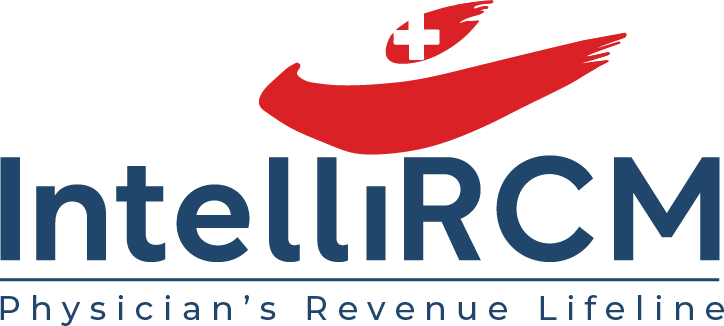
By intellircm 6th Jul 2022 Blog
Any hospital or healthcare system needs a comprehensive revenue cycle management system. Maintaining a high standard of care is only possible when the healthcare provider’s fiscal management process runs efficiently.
Each healthcare system should tailor its revenue operations solution to meet its unique goals. A successful revenue cycle management system will help you identify and resolve errors, simplify your revenue process, reduce administrative burden, and reduce fraud.
How does Revenue Cycle Management fit into the healthcare system?
Revenue cycle management (RCM) is an important aspect of the healthcare system—it’s the backbone of any practice or facility, no matter the size. A comprehensive RCM program supports administrative and operational activities easily so that your healthcare system can focus instead on providing quality care.
An RCM program fits into the healthcare system in the following ways:
Claim Preparation
RCM makes the care and billing cycle more efficient.
Before any patient appointments begin, you can verify the patient’s basic demographic information. This includes whether they have insurance coverage, a primary care provider, or any copayments due. The RCM provides a clean claims submission process and avoids unnecessary denials.
Claim Submission
Once care has been rendered, you can use an RCM program’s properties to submit claims.
Once the coding has been done and the superbill has been created, ensure that charges have been entered with proper modifiers and necessary claim information. Follow-up with quality control to ensure clean claims.
The RCM program then submits the claim to the patient’s insurance, with 99% of claims error-free.
Claim Management
Once submitting the claim, a useful RCM program manages the claim. Claim management involves checking clearing house reports for clean claims and if there are any rejections which must be rectified within 24 hrs and resubmit the claims, providing additional documents or medical records as needed and contacting the patient where necessary.
Receivables Collection
An RCM program also facilitates the back end of the claims process and revenue collection.
For instance, receivables collection begins when you pursue payment from the patient’s insurance. This may require issuing statements to the patient and sending bills to a collections department.
Implementing an RCM program eliminates collection uncertainty and makes filing liens easier.
Analysis and Evaluation
An RCM solution system will track your claim from open to close. The system also allows our team to analyze the data from the RCM’s practice management software and give feedback.
At this state, the RCM team looks for ways to improve their processes. RCM solution systems can minimize several errors, increase the likelihood of payment, and avoid a large number of aging accounts receivable.
6 Reasons Why Revenue Cycle Management is Important
Efficiently managing your revenue cycle provides several benefits. These include reducing administrative costs and improving claim recovery, among others. An efficient revenue cycle management system increases revenue by first identifying and then resolving points of friction.
Identifying and Resolving Errors
With an RCM solutions system, you can easily identify the point at which an error occurs. These errors are usually easily preventable, such as correcting missing patient information or incorrectly entered insurance information.
When these errors are avoided, insurance carriers are more likely to approve the claim at its first submission. This avoids any time or money spent investigating and appealing denials.
For most healthcare providers, avoiding a claim denial saves significant money.
Simplified Process
Like error resolution, simplifying your revenue operations process also saves money and increases the ease of revenue collections by providing a simple payment system.
An RCM solution provides an efficient and straightforward system to healthcare providers, physicians, coding specialists, and others with a revenue touchpoint.
Not only will this improve your revenue cycle, but it will also reduce friction, frustration, and confusion for staff. This enables claims to be submitted on time.
Increasing Healthcare Facility Revenue
One of the most important and significant benefits of RCM is that it will enhance your revenue.
After correcting any technical errors, you can promptly receive reimbursement for your service. Rather than spend money resolving errors, appealing claims, or investigating fraud, you can eliminate this altogether and instead increase income.
Avoiding Healthcare Fraud
Healthcare fraud costs the industry billions of dollars every year, which an RCM solution can prevent.
In addition to the cost, healthcare fraud investigations can ruin your practice’s reputation and cost revenue—whether the fraud is intentional or not.
Common coding issues leading to fraud investigations include:
- Upcode
- Low-quality/unnecessary procedures or tests
- Services that weren’t rendered
RCM ensures that all of these frauds are eliminated, helping to reduce interaction with revenue authorities. An RCM solution also keeps providers up to date with the ever-changing healthcare regulations. This prevents any unintentional fraud as well.
Avoiding Patient Fraud
Like healthcare fraud, patient dishonesty can cause fraud in two different ways.
First, a patient may provide inaccurate information. For example, a patient may lie about their insurance coverage to receive the treatment they’re otherwise unqualified for. This is why patient verification is an important first step in revenue cycle management. An efficient program spots inaccurate information quickly.
Second, medical identity theft is a growing concern for healthcare providers. Medical identity theft costs the provider and the victim. Because RCM starts with verifying patient information, any attempted identity theft is addressed proactively.
Other concerns to beware of include bad checks.
Ease Administrative Stress
An effective administration enables medical staff to provide quality care. One of the largest burdens faced by administrative staff is the time required to investigate and appeal claim denials.
With revenue cycle management, more time is saved for patient care. RCM focuses on the front-end tasks to simplify the interactions between administrative staff and patients.
From appointment scheduling to intake form completion and payment processing, an RCM solution creates a comprehensive satisfactory experience.
How IntelliRCM Provides Efficient RCM Services
Improving your revenue cycle management system doesn’t have to be stressful. With IntelliRCM, you gain a trusted partner capable of facilitating your claims process from open to close. Our technology and technical support team will help you identify and resolve errors, prevent healthcare and patient fraud, and reduce your administrative burden.
Book a free analysis with IntelliRCM today.





